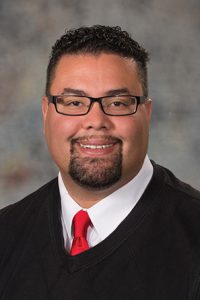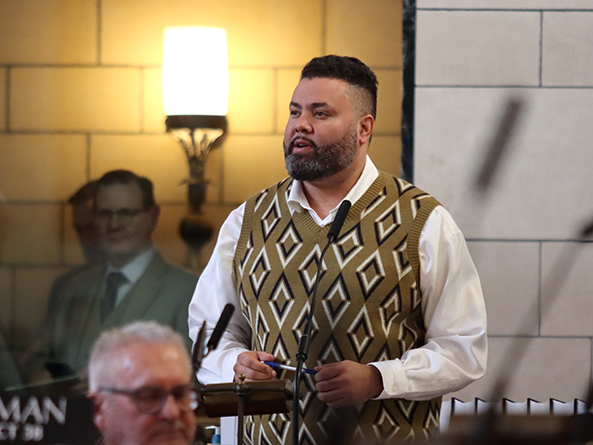Innovation hub measure amended, advanced
A proposal to update the Nebraska Innovation Hub Act advanced to the final round of debate March 26 after lawmakers amended it to limit the number of special retail districts that could be created statewide.

The act allows the director of the state Department of Economic Development to designate private nonprofit corporations and postsecondary educational institutions as innovation hubs in certain geographic areas to stimulate partnerships, economic development and job creation.
As amended on general file, LB1344, sponsored by Omaha Sen. Justin Wayne, would allow an innovation hub to be located within an inland port district, 30 miles of a certain reservoir or any county with a population of less than 100,000.
It also would increase the maximum number of innovation hubs that could be designated in the state’s 1st Congressional District from four to six and in the 2nd Congressional District from three to four.
The bill would require the department to terminate a designation for any innovation hub that has not fully implemented a memorandum of understanding entered into with the department director within three years after the designation.
Wayne introduced an amendment on select file that contains amended provisions of his LB1356, which would expand the definition of community betterment organization to include inland port authorities.
The amendment would rename and modify the Community Development Assistance Act, which allows cities, villages, counties and other community betterment organizations engaged in eligible activities in community development areas to apply to DED to have one or more programs certified for tax credit status.
Under the new Creating High Impact Economic Futures Act, agribusinesses, innovation hubs and inland port authorities would be classified as community betterment organizations. The definition of community development area would expand to include economic redevelopment areas, enterprise zones, counties with a population of less than 10,000 and inland port districts.
The operations of inland port authorities, sports complexes and intermodal facilities are among the new activities that would be eligible for tax credit status.
Individuals and businesses currently receive a 40% tax credit for contributions they make to a community betterment organization’s certified program.
Under Wayne’s amendment, individuals would be eligible for a nonrefundable income tax credit equal to 100% of their contributions. Passthrough entities, corporations and estates or trusts would be eligible for a nonrefundable credit equal to 50% of their contributions.
The amendment would limit the total amount of tax credits to $2 million per congressional district per calendar year, for a total of $6 million annually.
The amendment also contains amended provisions of Wayne’s LB1228, under which DED could approve no more than three good life districts across the state.
Transactions within the districts, which the Legislature authorized last year under the Good Life Transformational Projects Act, are subject to a reduced state sales tax rate of 2.75%.
Wayne said the proposed limit on good life districts is intended to safeguard state sales tax revenue.
Under the amendment, no more than one good life district could be created in a county with a population of 500,000 or more, not including a district created within an inland port district.
Wayne introduced another amendment, adopted 28-0, under which no more than five districts could be created. It also would limit the maximum amount of credits per program or project under the Creating High Impact Economic Futures Act to $150,000 per year for both the 1st and 3rd congressional districts.
Sen. Carol Blood of Bellevue supported the amendment, saying the higher maximum number of good life districts is needed to accommodate a proposed district in Bellevue.
Elmwood Sen. Robert Clements expressed concern about a provision in Wayne’s original amendment that would have allowed individuals or businesses to receive a tax credit for services they contribute to a community betterment organization.
Wayne offered an amendment, adopted 37-1, to remove that provision.
Senators then advanced LB1344 to final reading by voice vote.


